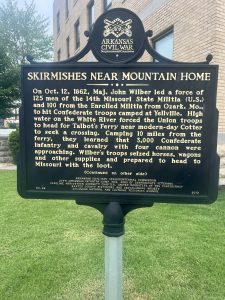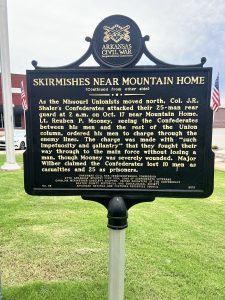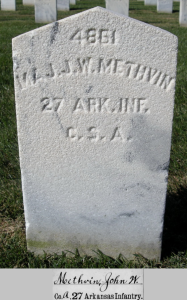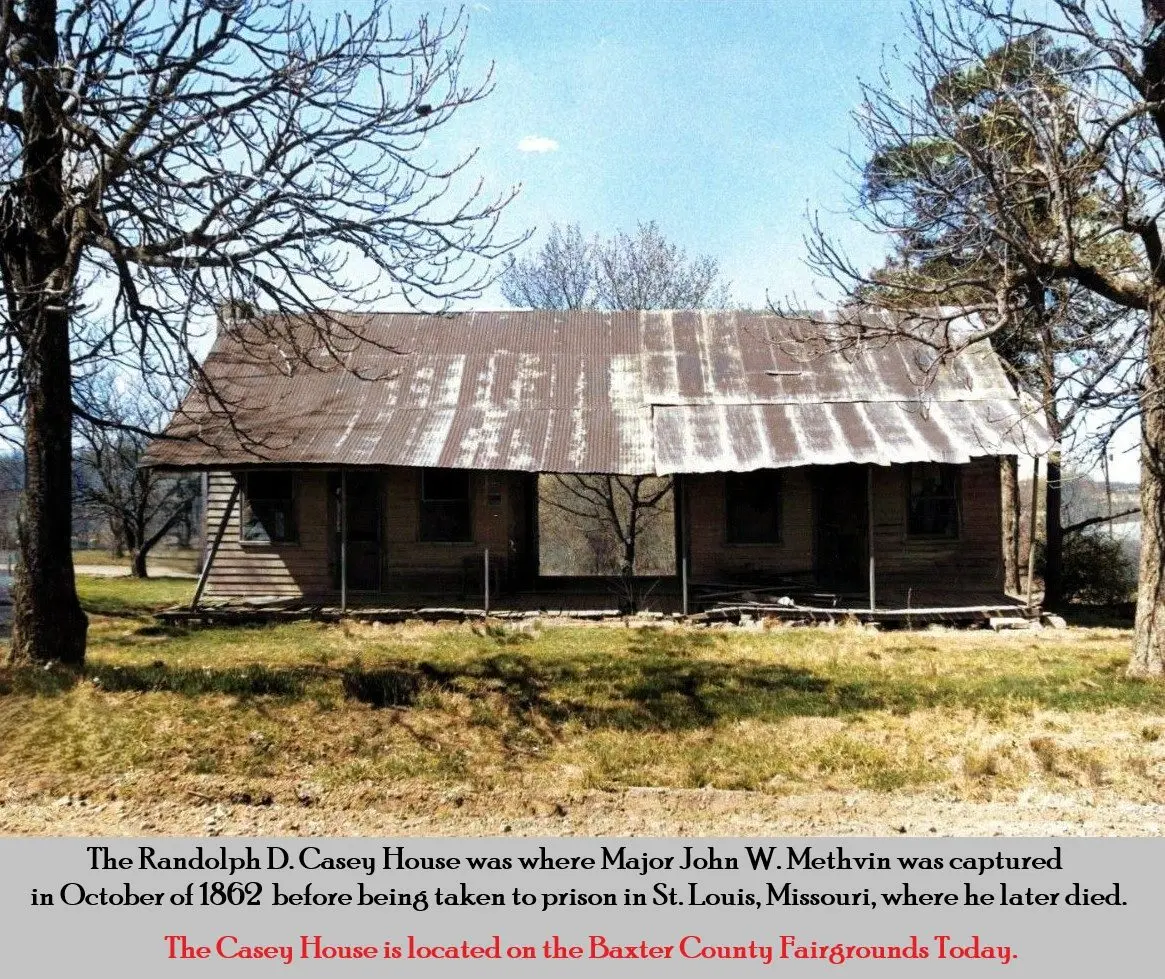Welcome back to Retracing Our Roots, as Sammy Raycraft and Vincent Anderson wrap up part 2 of our series on the Plundering Expedition of Rapp’s Barren. Today, we tread the rolling prairies of Marion (Baxter) County, Arkansas, in October 1862. As the Civil War’s shadow darkens the Ozarks, a Union cavalry sweeps through Mountain Home, seizing horses, wagons, and a gravely ill Confederate officer, Maj. John Woodward Methvin. His story is a tapestry of valor, loss, and a prison’s cold embrace still echoes across these hills. Let’s retrace it together.
The Raid: A Community Pillaged
October 16, 1862. Dawn breaks over Rapp’s Barrens, Tolbert’s Prairie, locals call it. Major John Wilber’s Union raiders, 250 strong, descend. Farms are stripped bare: 50 horses, 5 wagons, winter provisions; all was all looted. Defenseless women watch helplessly. Among the captives was Maj. Methvin, feverish and riding in a buggy, too ill for horseback. He’s pulled from Colonel Casey’s home, a prize for the 14th Missouri Cavalry."
Methvin wasn’t just a soldier. For a decade, he’d been Marion County’s clerk, a respected father of four. Now, his officer’s papers are torn away at Ozark headquarters. Without them, he’s worthless for prisoner swaps. Just another sick Confederate.
Tucker Flats: Blood on the Prairie
Nightfall, October 16, 1862. Maj. Wilber’s men camp on Tucker Flats (off Tucker cemetery Road). At 2 a.m., 40 Confederates of the 27th Arkansas Infantry launch a desperate rescue. Lt. Reuben Mooney, leading the Union rear guard, is encircled. His response? A daring charge, 'with such impetuosity,' records say, he slashes through Confederate lines. A bullet shatters his hand, but his men escape. Not all are so lucky."
Tragic Toll:
- 10-14 Confederates killed (records vary), buried beside a spring where they fell.
- 25 captured, forced to dig graves for comrades under Union guard.
- Methvin sees his hope fading as the cavalry marches him north.
Springfield, Missouri
November 12, 1862. Methvin, gaunt and trembling, takes up a pen and pleas for parole:
“I was brought here on the 20th of October, last, and my health being somewhat impaired since I came here. I therefore ask parole with such bonds & terms as your honor may suggest. My certificate of appointment was taken from me at Ozark by the Adjutant or Sergeant Major of that place if you can do anything for me that would better my situation. The favor will be properly appreciated. I am, lieutenant, with much respect, your obedient servant.”
Methvin’s request was denied. Days later, he’s shackled for St. Louis.
The journey? A nightmare.
Prisoners walk 100 miles to Rolla, sleeping in the mud, starving. One man dies of chill outside Gratiot’s gates.
Inside? Worse.
Gratiot Street Prison:
- 800 men crammed into a 'filthy, dark' rotunda.
- Two stoves for 100 souls.
- Two meals a day consisting of stale bread, rancid bacon, 'soup' of beef-boiled water. No utensils. Men licked tin plates.
- Sisters of Charity bring scraps of food, but disease runs rampant. Methvin’s pneumonia worsens.
By December, meningitis takes Methvin’s life, and he was buried nearby at Jefferson Barracks, Section 21, Site 4861, bearing no date. Missouri newspapers whisper the date of December 10, 1862.
In 1864, a monument rose at Jefferson Barracks. Methvin’s children grew up fatherless, and his widow, Corasandra, eventually remarries.
Yet here in Baxter County, where Tucker Flats' spring still flows, the wind carries whispers of sacrifice across a lonely field near Mountain Home at the abandoned Confederate Cemetery. On this Ozark slope where Methvin's rescuers fell, soldiers rest beneath prairie grass, marked only by the land itself. In reflection of Maj. Methvin, the great Ozark chronicler Silas Turnbo wrote, “The Confederate Army lost a true soldier. Arkansas, a noble citizen.”



Heartfelt thanks to our hometown heroes at Rapp's Barren Brewing Company, your steadfast support fuels Retracing Our Roots and keeps these stories alive! This is authentic Ozark History and storytelling at its finest. Without the passion, heritage, and partnership of folks like Rapp's, we'd never revive these tales and pass them along, one generation at a time.
Next time you're in Mountain Home, stop by Rapp's downtown and say thank you to Russell Tucker and his amazing team – true champions of local history that still echoes through these hills.
Sip. Savor. Sojourn.
— 𝙍𝙚𝙩𝙧𝙖𝙘𝙞𝙣𝙜 𝙊𝙪𝙧 𝙍𝙤𝙤𝙩𝙨











